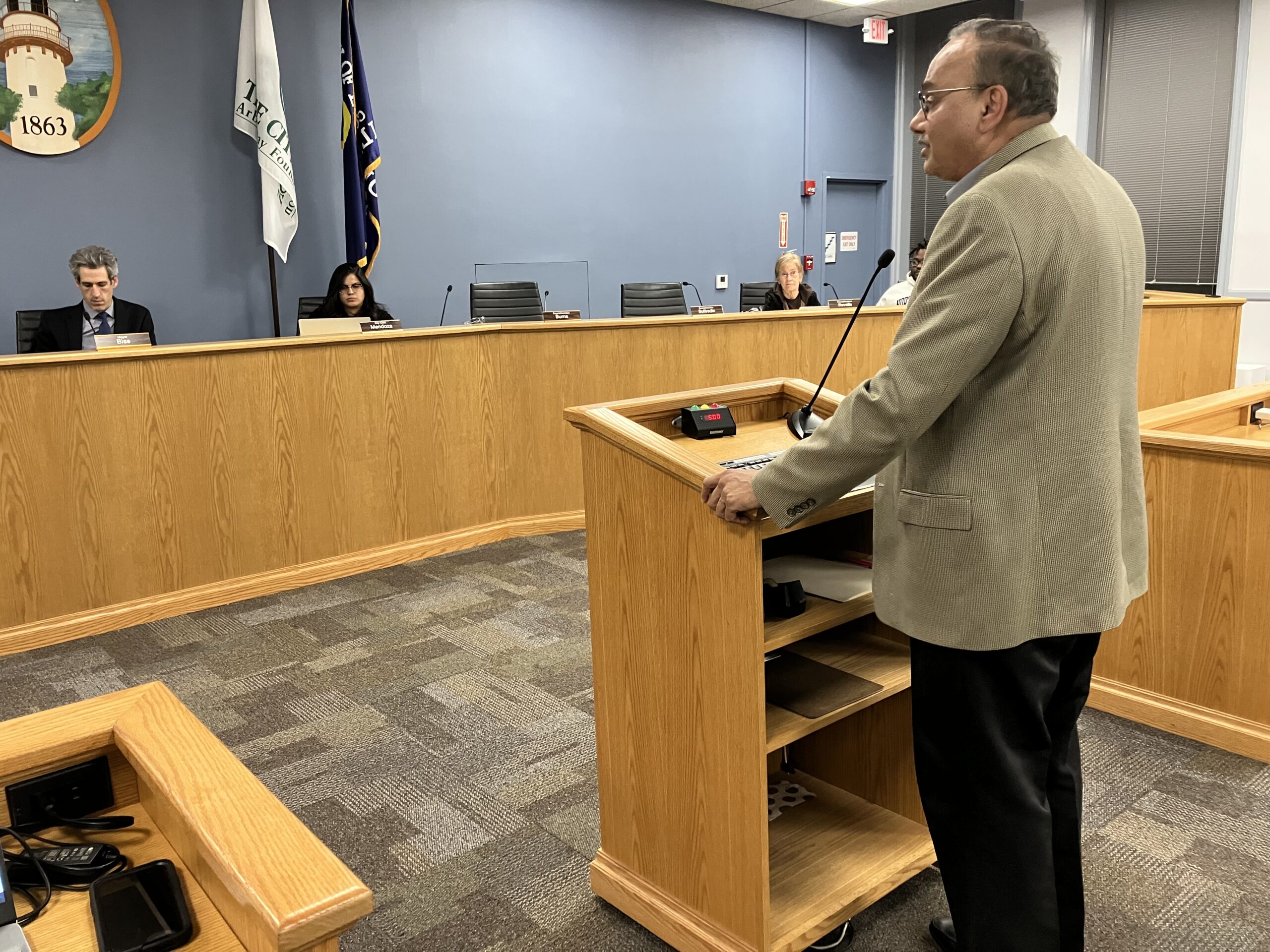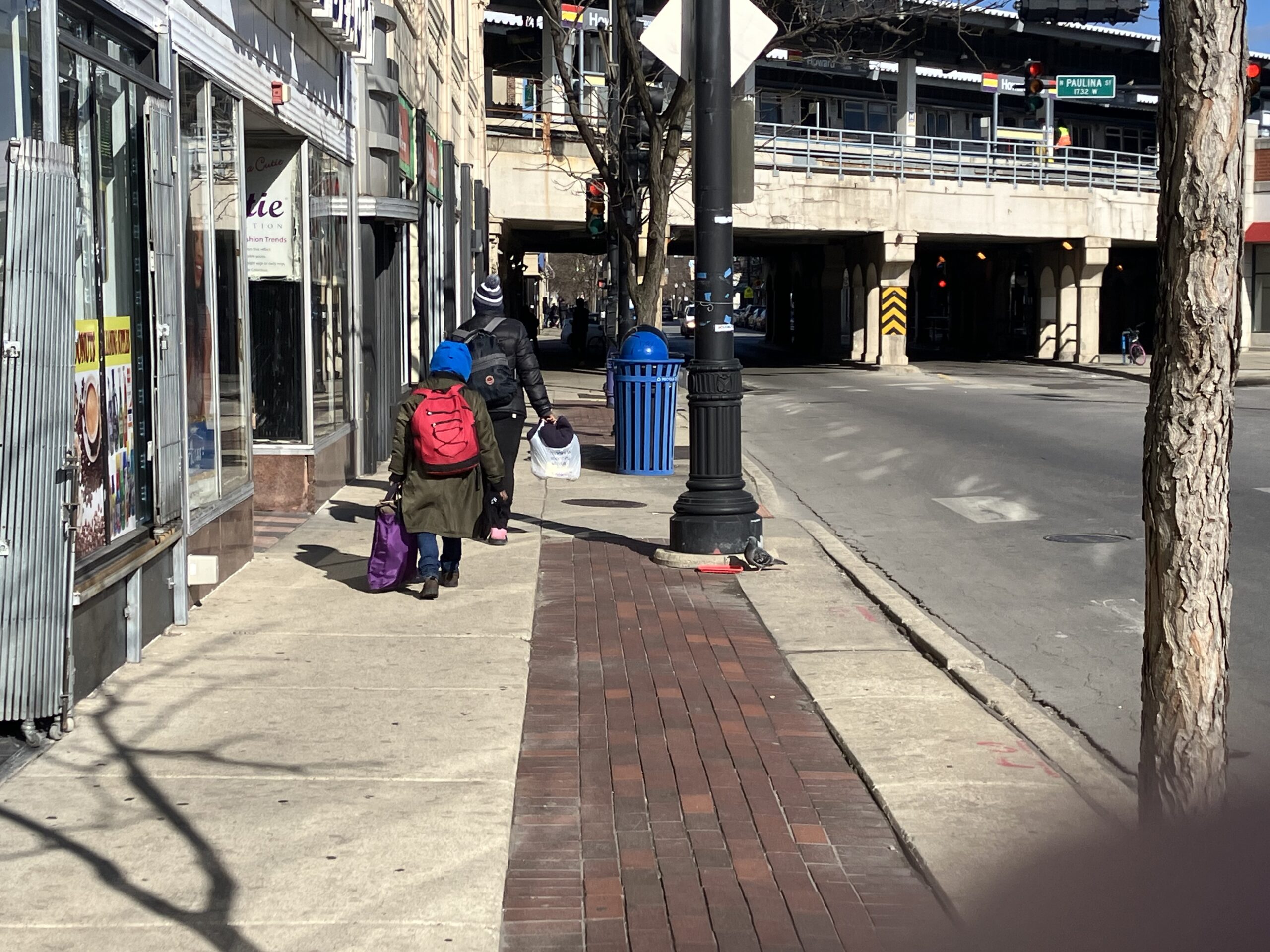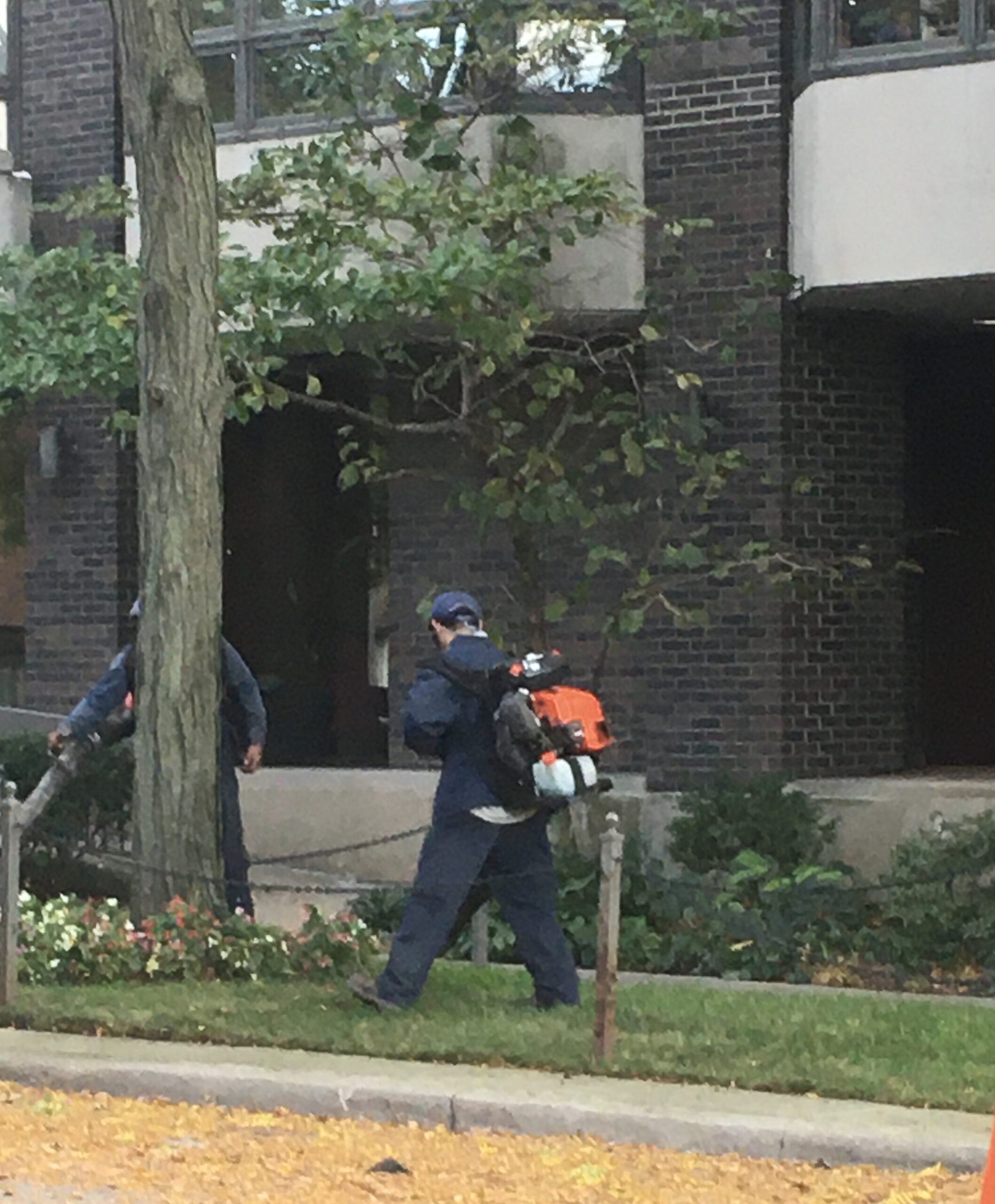By Bob Seidenberg
Speakers at Monday night‘s Truth in Taxation hearing on the city’s proposed 2024 budget urged Evanston City Council members to pull back from a spending plan which includes the first property tax hike in recent years, advocating cutting expenses and reducing the city’s long-term debt instead.
“We have a spending problem, not a revenue problem,” declared Michael Vasilko, the night’s first speaker.
The city’s current path, which includes pension increases and a new wage package for city employees, “is not sustainable,” he said.
With a number of possible tax increases pending, council members took no votes at the Truth in Taxation hearing they are required by law to hold.
But during the discussion that followed public comment, several indicated they were comfortable with the staff’s budget’s request. Council members are expected to start putting together the elements of the final city budget at their Nov. 13 meeting.
Evanston City Manager Luke Stowe’s $449 million proposed budget calls for a $51.8 million increase from 2023, with officials maintaining the steep hike is largely due to a new wage package for all employees and a Capital Improvement Program. Officials estimate that with the proposed 7.9% increase in the city’s property tax levy, residents with a home valued at $400,000 would pay an additional $130 a year.
The budget also includes a 17.55% increase in water rates to cover the cost of water main and lead service line replacement work, which will add approximately $70 a year to the typical household’s water bills.
Other increases include a 7.5% boost in solid waste rates to cover a portion of the 11% raises for workers in that area as well as a $500 hike in ambulance service rates to cover the cost of a new subscription service to replace all equipment on city fire trucks.
During citizen comment Monday, about a half-dozen speakers urged council members to consider the impact of the increases.
Eric Paset, managing broker of North Shore Apartments & Condos as well as a Fourth Ward resident, told council members, “I just got my tax bill as a homeowner and as you probably know they went up and I think what you might be failing to realize – forget about apartment buildings – office buildings are … 20, 30, 40% vacant at this point.”
Whatever those buildings contribute to property tax revenue is going to be less than in the past, he said. “So as a result of that, if we do nothing, property taxes for everybody are going to go up, substantially.”
“I said last time, ‘We’ve got to find other sources of revenue besides continuing to raise taxes.’ If you have a $400,000 home, you’re paying close to $10,000 [in property taxes]. If you went to Des Plaines or Morton Grove, you would be paying substantially less.”
Mary Rosinski, a 7th Ward resident and longtime real estate agent, pointed to expenses included in the city’s proposed capital improvement budget, $1.5 million in consultants fees for the Civic Center and city service center, “with the assumption that we’re tearing this down, and then as you go into a five-year projection there is $120 [million] to $130 million in GO [general obligation fees to support long-term bonds issued for the projects].”
“But we’ve never discussed this as a community,” Rosinski said. “I think this is very inappropriate.”
Another speaker Trisha Connolly, began her remarks,
“I will say thank you for your work in fully funding our police and fire pensions and thank you for not having a tax increase in two years.”
Then she added: “That being said, this budget negates it all. I would really encourage all of you to take a strong hard look at that and really consider what can we do on the front end to minimize increases, rather than present something to the community that’s all about the kitchen sink.”
In his turn at the podium, John Kennedy, another longtime budget observer, cited historical precedent and comments by former Mayor Steve Hagerty about the need to reign in spending.
Just five years ago, in June 2018, Kennedy noted, the city increased its debt limit and issued $85 million in new bonds, primarily to fund construction of the new Robert Crown Community Center and finance other capital improvements.
“At the time, Mayor Stephen Hagerty said, quote, ‘We have to have a financial plan for how we’re going to pay down this debt,'” Kennedy said. “Basically, each million dollars of debt costs $70,000. So if you’re talking about adding $50 million, you’re talking about $3½ million [annually] in additional expense [paying off the bonds issued for the project]. The council has to be serious about ways to address this expense.”
“If you want to maintain the social, economic, racial and ethnic diversity that we have here in Evanston, we have to be sensitive to high taxes,” he said.
The residents’ views, though, received some pushback during council discussion that followed.
Reid: What would you have city cut?
Council Member Devon Reid (8th Ward) questioned residents about their rationale.
“Folks keep saying we have a spending problem that we need to cut back on,” he said. “What service that the city provides would folks like to see us cut? Would folks like to see trash picked up fewer days, less police officers on the street, fewer firefighters?”
Council Member Jonathan Nieuwsma (4th Ward) said he initially shared some of the concerns about high property tax bills.
But he pointed to chart drawn up by staff that shows the city’s property tax levy, using 2021 rates, was near the bottom in a comparison of area communities’ composite rates, with Oak Park at the top.
“Property rates really do feel high here in Evanston,” he said. “But if we look at our surrounding neighbors, they’re actually not so bad.”
Hitesh Desai, the city’s chief financial officer and treasurer, told council members that one reason the city’s rate is lower may be that unlike the other communities, Evanston doesn’t have separate taxing districts for fire, parks and other areas.
“So a lot of back office [jobs] – human resources, finance, legal, all those things – are done by the same people.”
Kelly: Staff tax comparison not apples to apples
Council Member Clare Kelly (1st Ward), challenged the staff chart’s relevance. “You have to compare apples to apples and include debt liability on pensions.”
Taking into account those factors, “I think we’re going to find that we are paying per capita some of the highest [rates] of surrounding communities,” she said.
Kelly also challenged the relevance of a chart officials have presented at budget hearings which states that the city tax bill, including the library, accounts for 20% of the total property taxes residents pay.
That’s actually a higher percentage than residents in Skokie, Wilmette and Oak Park pay for city services. “Skokie, apples to apples with its Parks and Rec, is at 16% of the total,” she said.
She requested that officials come back with a budget that doesn’t raise property taxes. “We have to show sensitivity to our residents. We have to show that we’re sensitive, that we want to maintain a socioeconomically and racially and ethnically diverse population.”
In further discussion, though, other council members didn’t speak in support of Kelly’s request.
Nieuwsma spoke of the need to adjust the budget in one area.
“I want to acknowledge that despite the best efforts of many stakeholders in addressing social issues downtown with aggressive panhandling, the unhoused homeless, we still have an issue downtown and in other neighborhoods with people that remain on the street, many of whom are suffering from various forms of mental illness,” he said.
“I want to make sure that we are working into our 2024 budget, adequate outreach to people on the street, and not just being reactive, but trying to get ahead of the problem as much as we can.”
Reid lists alternative revenues
Reid pointed to a set of his proposals, including possible revenue from Northwestern University’s stadium project, that he said would eliminate the need to raise property taxes.
“And that is my goal,” he said.
His list included vacant property fees, progressive rental registration fees, a food delivery tax, an expansion of the current wheel tax and a fee on recreation center parking for nonresidents.
“I think there’s room for us to increase our motor fuel tax by a few cents per gallon and that would bring in significant revenue for the city,” Reid said.
Going down his list, Reid said a head tax on large employers, charged based on the number of employees who are not from Evanston, could generate $500,000.
He told council members he intends to bring those suggestions and others to the Nov. 13 City Council meeting.




